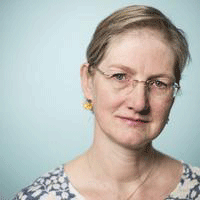Pre-semester Danish Language Courses – more than an introduction to the Danish Language
The University of Copenhagen established the Pre-semester Danish Language Courses for international exchange students more than 30 years ago with the core aspiration of strengthening the reciprocity and collaboration in international student exchange.
The programme initiated as a single collaboration between UCPH and the University of California Year Abroad programme (UCEAP). Over the last thirty years, the Pre-semester Danish Language programme has grown wide, and today exchange students from all of our 300 partner universities can participate in the intensive language courses offered during the pre-semester - without any additional fees.
 As a result, each academic year, more than one out of four new exchange students chooses to take the pre-semester Danish Language Courses. Since 2015 more than 1,400 students have enrolled in the courses with a majority of students coming through our bilateral agreements outside of Europe (62%), followed by Erasmus students (34%), and Nordic students (4%). The top three nationalities represented are USA (62%), Germany (14%) and Australia (10%). While it is clear that most students who enroll come from English speaking countries, there is no clear inclination when it comes to field of studies.
As a result, each academic year, more than one out of four new exchange students chooses to take the pre-semester Danish Language Courses. Since 2015 more than 1,400 students have enrolled in the courses with a majority of students coming through our bilateral agreements outside of Europe (62%), followed by Erasmus students (34%), and Nordic students (4%). The top three nationalities represented are USA (62%), Germany (14%) and Australia (10%). While it is clear that most students who enroll come from English speaking countries, there is no clear inclination when it comes to field of studies.
Taking into consideration that learning Danish is not strictly necessary to study at UCPH, due to the extensive offer of English-taught courses, the appeal of the course is interesting.
If learning Danish is not crucial nor required, why should students take the courses? What do the courses give the students?
Language boot camp
The pre-semester Danish Language Course (DLC) consists of intensive language courses for international students. Students enroll in different courses according to their proficiency level in Danish. Regardless of level, the courses are intensive in both content and aims, and students are required to commit fully during the three-week courses.

Associate Professor Juni Arnfast
In addition to compulsory attendance, students must pass both an oral exam and a written exam in order to obtain 7.5 ECTS. When we asked Associate Professor Juni Arnfast from the Department of Nordic Studies and Linguistics to describe the courses, she responded: The language course is a boot camp conducted by highly specialised teachers, and as such, it’s an extraordinary opportunity for students to obtain an excellent introduction to the Danish language.
Make friends and culture
An important principle behind the structure of the Danish language courses is to integrate language and culture.
Professor Arnfast explains that introducing students to the local culture is a deliberate pedagogical approach: You can’t teach language without incorporating cultural aspects, Professor Arnfast says.
As introducing students to the local culture is essential, the courses consist of classes in the morning and cultural activities in the afternoons.
The activities help students getting to know each other and making new friends. Looking back on the pre-semester DLC, Robert Samuel Abettan, Erasmus student from France, explains:
I think the DLC is a great opportunity to meet exchange students that really want to get the full experience of their time abroad. The DLC is an optional programme that requires students to fully immerse themselves in both its academic and social/cultural dimensions.
Time to settle in
Another benefit of the courses is that they take place in January and August, right before the semester start. This gives students plenty of time to do all the required paperwork and prepare for student life in Copenhagen.
The most important reason why I chose the DLC was the opportunity to arrive earlier in the summer in Copenhagen to prepare my integration into the Danish society, Robert continues.
Besides providing international students with an exceptional introduction to the Danish language, the pre-semester Danish Language Courses facilitate cultural integration and social interaction – and, in the process, allow students to settle in before the semester start.
Contact
Alexandra Brito
International Coordinator
aob@adm.ku.dk
DLC website
Find more information on the Danish Language Course Website
Students say:
For me, the three weeks of the DLC was the nicest period of my stay in Copenhagen and I would definitely recommend it to every exchange student who wants to come to Copenhagen!
Ramona Porsche, Germany
